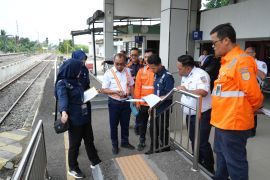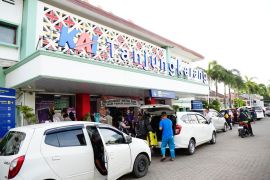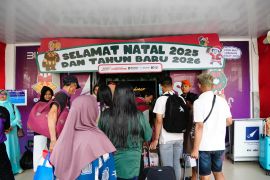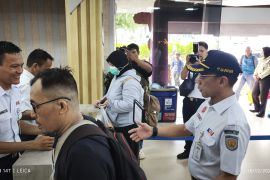
Keeping Indonesia's railway business PT KAI on track during pandemic
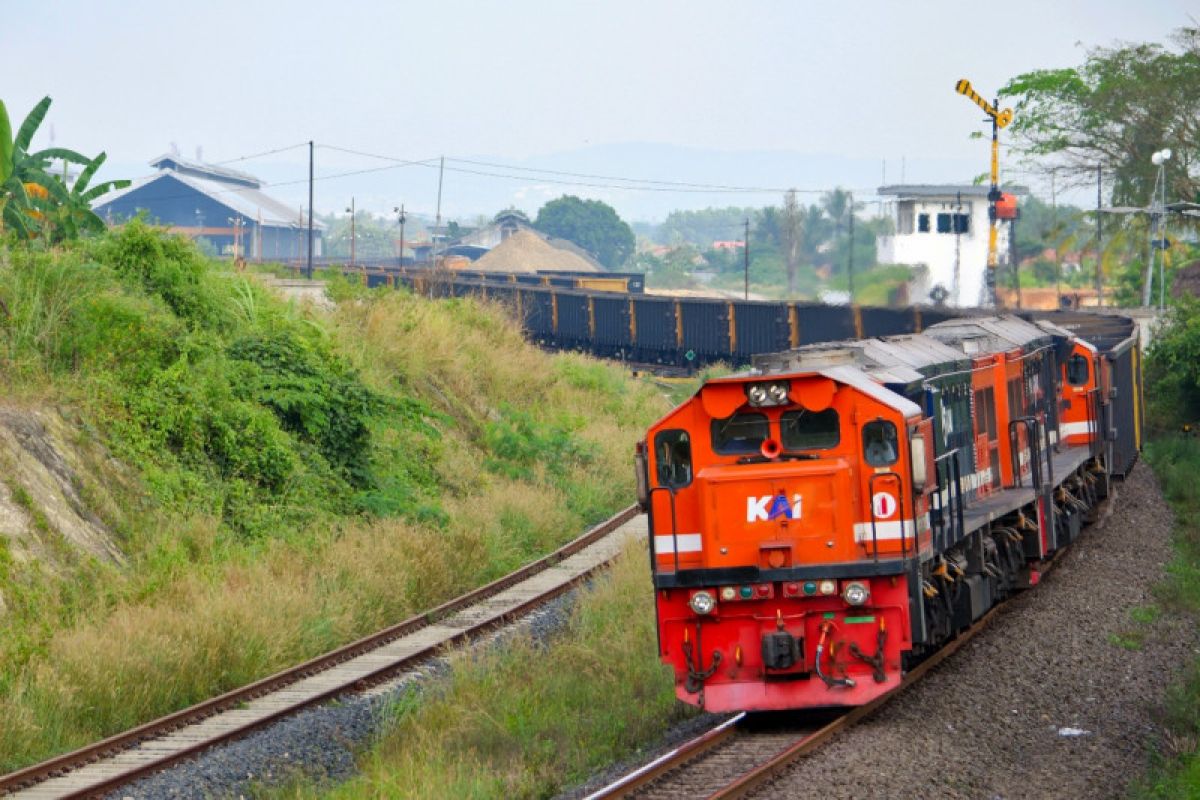
The President has advised us that we must hijack the momentum of the crisis in order to make big leaps
Jakarta (ANTARA) - The transportation sector has largely suffered since the start of the coronavirus pandemic, which has forced people to stay indoors, as mobility is a key requirement for players in the sector to earn revenue.
Among the transportation businesses, the railway business in the country has been considered among the most affected since it largely relies on passengers to generate revenues.
Indonesian railway company PT Kereta Api Indonesia (KAI) served a mere 186.8 million passengers following the coronavirus outbreak in 2020 compared to 429.2 million passengers the previous year.
KAI Commuter, a subsidiary of the PT KAI serving commuter line, experienced a similar decline: its passenger count tanked to an average of 300 thousand passengers per day from an average of one million passengers per day.
As a result, the company incurred losses in its daily revenue to the tune of Rp24.2 billion, with revenues dipping to Rp800 million from Rp20-25 billion.
KAI also cut its capital expenditure in 2020 from Rp12 trillion to Rp9 trillion as a strategic move to patch up the cash flow leak.
This fueled concerns over whether the state-owned railway company could keep its business on track, while supporting the government’s policies pertaining to curbing COVID-19 transmission through the enforcement of a series of restrictions.
State-owned Enterprises (SOE) Minister Erick Thohir said that the company needed to slash its operation during the pandemic, but it should continue to improve in a bid to survive.
“The President has advised us that we must hijack the momentum of the crisis in order to make big leaps,” Thohir remarked.
He then urged KAI to continue to bolster the culture of mutual cooperation so that it is in a better position to face the changing times.
Optimizing Freight Trains
KAI President Director Didiek Hartantyo said that the company has three key strategies for facing the current challenges so that it can grow strong amid the pandemic.
“Adaptation, innovation, and collaboration have become the critical keys for KAI to remain growing amid the current crisis,” he highlighted.
Through those three key strategies, KAI will need to think out of the box to resolve existing problems, including the declining number of passengers which has led to revenue losses, he said.
Apart from passenger trains, KAI believes that freight trains can help its business to perform well despite the COVID-19 pandemic, Hartantyo said.
As of the first half of 2020, KAI’s freight trains have contributed 43 percent to the company’s total revenue, becoming the main revenue source during the crisis, he informed.
The falling number of passengers has driven KAI to optimize the freight train business through some strategic moves, he added.
The company's freight train volume in August 2020 reached 3.9 million tons, or 6 percent higher compared to 3.7 million tons in July 2020, he said.
In addition, KAI’s retail transportation service Rail Express recorded a surge in freight transport, reaching 10,581 tons, or 73 percent higher in June 2020 compared to 6,103 tons in May 2020, he noted.
By the end of the first half of 2021, the company’s freight train service continued to perform positively, Hartantyo said. It served 28.2 tons from January to July 2021, up 8.9 percent from 25.9 tons during the corresponding period of the previous year.
“The increasing volume of freight that KAI has served is very important for the company to survive amid the prolonged COVID-19 pandemic,” he highlighted.
However, he acknowledged that the pandemic has more or less impacted the company’s target but it is striving to make extra effort by intensifying coordination with stakeholders.
The innovation that KAI has carried out could help contribute to revenue, but the company has not recovered all the losses yet, according to Djoko Setijowarno, a transportation expert at the Soegijapranata Catholic University.
KAI should boost its freight train service that has not been widely chosen yet by customers, especially in Java Island, he advised.
However, the government should also provide fiscal incentives so that customers can switch from trucks to freight trains for transporting cargo, he added.
“The government, through the Finance Ministry, should eliminate the value-added tax of 10 percent for those who utilize freight train services,” Setijowarno suggested.
He said that if the government eliminates this tax, it will trigger multiplier effects, such as reducing the extent of roads damaged due to overloaded and oversized trucks.
Innovating Soft Infrastructure
Apart from causing KAI to boost freight train services, the pandemic has also pushed the company to innovate its soft infrastructure further to offer comfort to passengers traveling by train, thereby helping the passenger count recover.
Through the KAI Access app, customers do not have to come to the station just to cancel a trip and refund their ticket as long as it has been updated to the newest version.
The company has also integrated the boarding system with the PeduliLindungi (to care and protect) app since July 23, 2021 to ensure the security of passengers, KAI’s public relation vice president Joni Martinus said.
“The integrated PeduliLindungi apps and KAI’s boarding system aim to make it easier for customers to go through the document checking process as well as to prevent document falsification,” he noted.
KAI has consistently applied the travel requirements strictly, he said, adding that only those who meet the requirement are allowed to board trains and all requirements are in line with the Transportation Ministry’s Circular No.69 of 2021.
Despite the requirements and restrictions, KAI recorded as many as 156,797 passengers in long-distance trains and local trains, with average daily passengers reaching 22,400 during August 24-30, 2021, an increase of 20.7 percent compared to 129,873 passengers and 18,553 average daily passengers during August 17-23, 2021, Martinus said.
Baca juga: State-owned railway operator launches Sriwijaya train with wagons made of stainless steel
Baca juga: PT KAI-Transportation Ministry to build special railway
Pewarta : Juwita Trisna Rahayu
Editor:
Budisantoso Budiman
COPYRIGHT © ANTARA 2026


